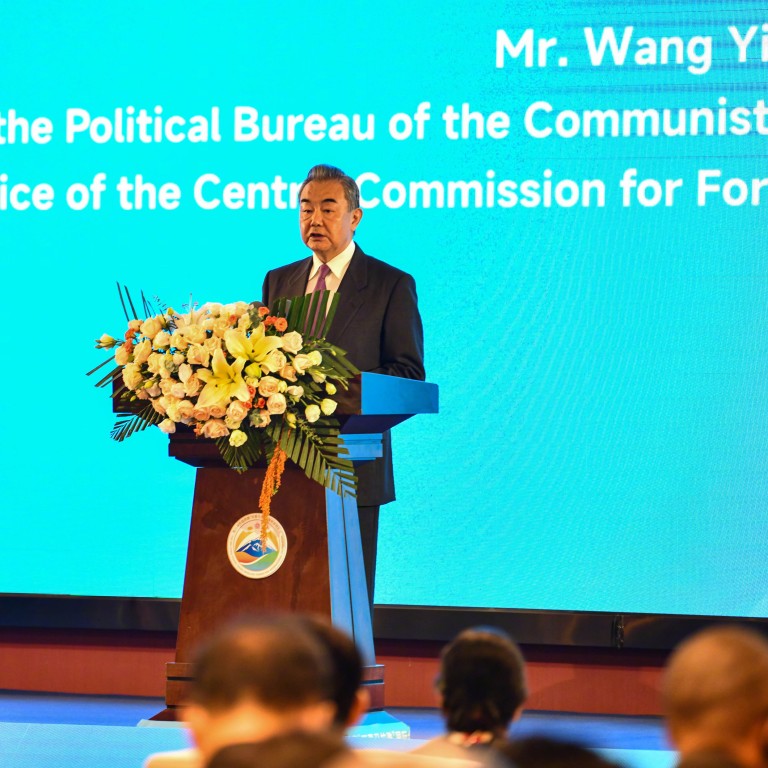
Chinese Foreign Minister Wang Yi pushes Himalayan neighbours on ‘territorial integrity’ at forum near disputed border with India
- Top Chinese diplomat stresses environment and infrastructure as he hosts officials in Tibetan city near contested area of Arunachal Pradesh
- Officials from more than a dozen countries attend event on cooperation in Trans-Himalaya region, but New Delhi does not take part
Officials from more than a dozen countries, including several that share a border with China, attended the event.
It is unclear whether India was invited. It did not participate in previous forums in 2018 and 2019.
During his opening speech at the forum, Wang – who is also the Communist Party’s foreign policy chief – called on countries in the region to respect each other’s territory to ensure stability, prosperity and sustainable development.
“We must adhere to mutual respect and trust and jointly safeguard regional unity and mutual trust,” he said.
“We should respect each other’s sovereignty and territorial integrity, not interfere in each other’s internal affairs, support each other on issues involving each other’s core interests, insist on resolving differences through dialogue and consultation, and work together to build a big family of unity around the Himalayas.”
Wang also called for strengthened cooperation on green development, citing past achievements including environmental agreements with India, Pakistan, Sri Lanka and Nepal and a memorandum of understanding on low-carbon green cooperation with Nepali Prime Minister Pushpa Kamal Dahal during his visit to China last week.
He pledged that China would train professionals for the Southeast Asia Biodiversity Research Centre in Myanmar and a desertification prevention and control cooperation centre in Mongolia.
He said efforts would be made to promote key projects such as railways, highways, aviation, power grids and communications, as well as to improve port customs clearance, ease cross-border transport and strengthen the “soft connectivity” of rules, standards and funds.
The forum participants include Pakistan, Nepal, Sri Lanka, Myanmar and Mongolia – all countries that have signed on to the belt and road and are among some of the biggest beneficiaries of the plan, which marks its 10th anniversary this year.
Afghanistan’s acting foreign minister Mawlawi Amir Khan Mutaqi also attended, marking the second time the Taliban official has attended a regional meeting following the Moscow Format meeting in Russia last week. He was set to meet Wang on the sidelines of the forum to discuss his country’s development agenda, according to Afghan media.
Other belt and road members including Chile, Kenya and Italy also sent representatives to the forum, according to China News.
Rome remains undecided on whether to pull out of the initiative as a memorandum of understanding it signed with Beijing in 2018 is due to expire in March.

 - Kawala Xie.jpg?itok=NogZcyZ-&v=1661304068)